Punctuation Worksheets for Ages 3-4
13 filtered results
-
From - To
Introducing our specially designed Punctuation Worksheets for Ages 3-4, a delightful collection curated to introduce your little ones to the world of punctuation marks! Engage your preschoolers with fun and interactive activities that seamlessly blend learning with play. From understanding periods to marveling at question marks, our worksheets are crafted with vibrant visuals and straightforward exercises tailored for young minds. Perfect for both home and classroom environments, these worksheets promise to lay a strong foundation in punctuation, fostering early literacy skills. Let your child embark on a punctuation adventure designed just for their curious age group. Unlock the door to effective communication with our Punctuation Worksheets for Ages 3-4 today!
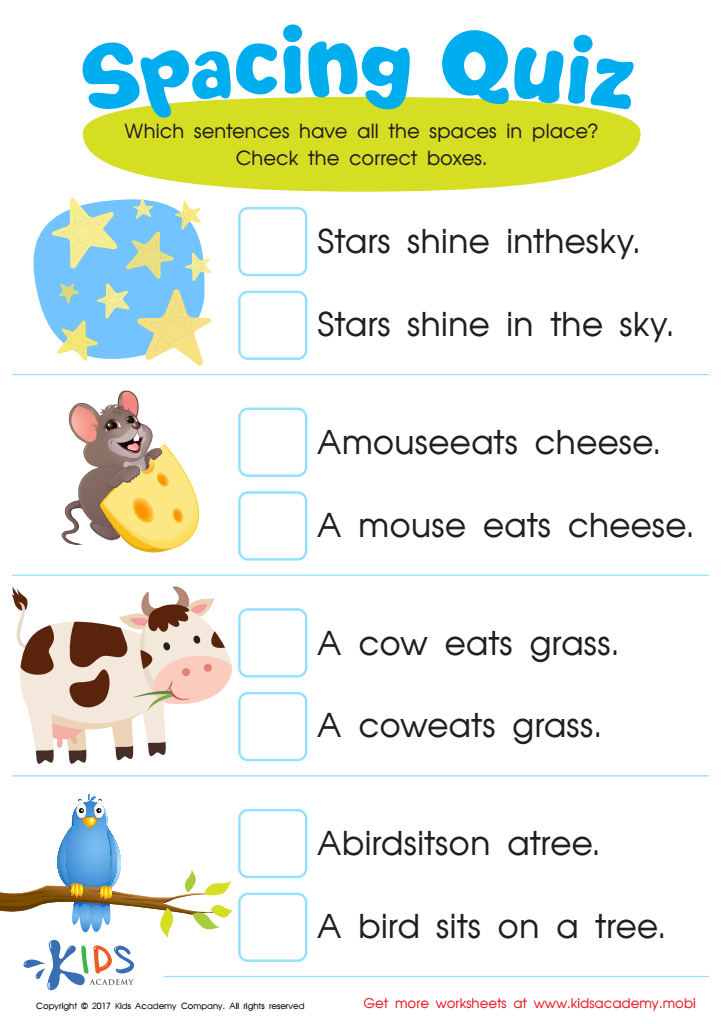

Spacing Quiz Worksheet
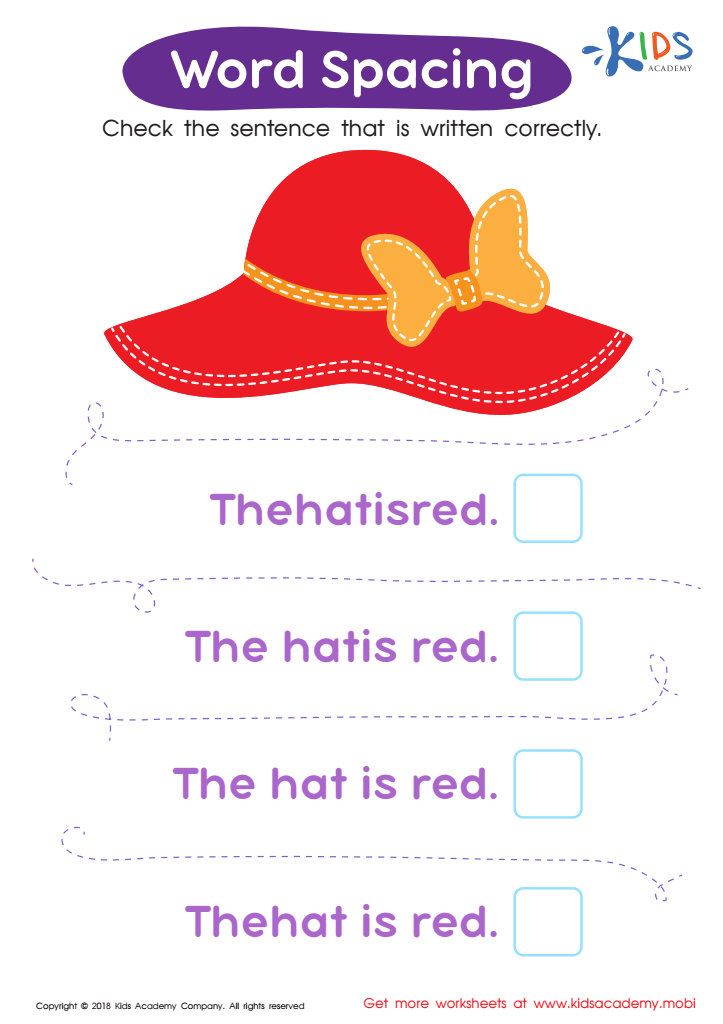

Word Spacing Worksheet
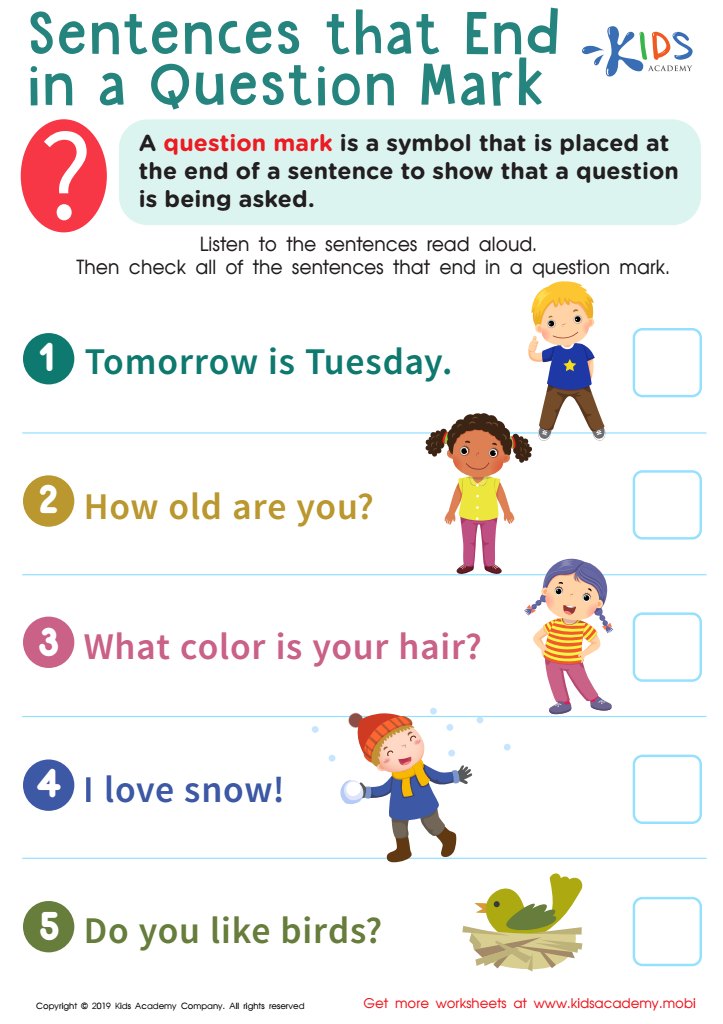

Sentences That End in an Question Mark Worksheet
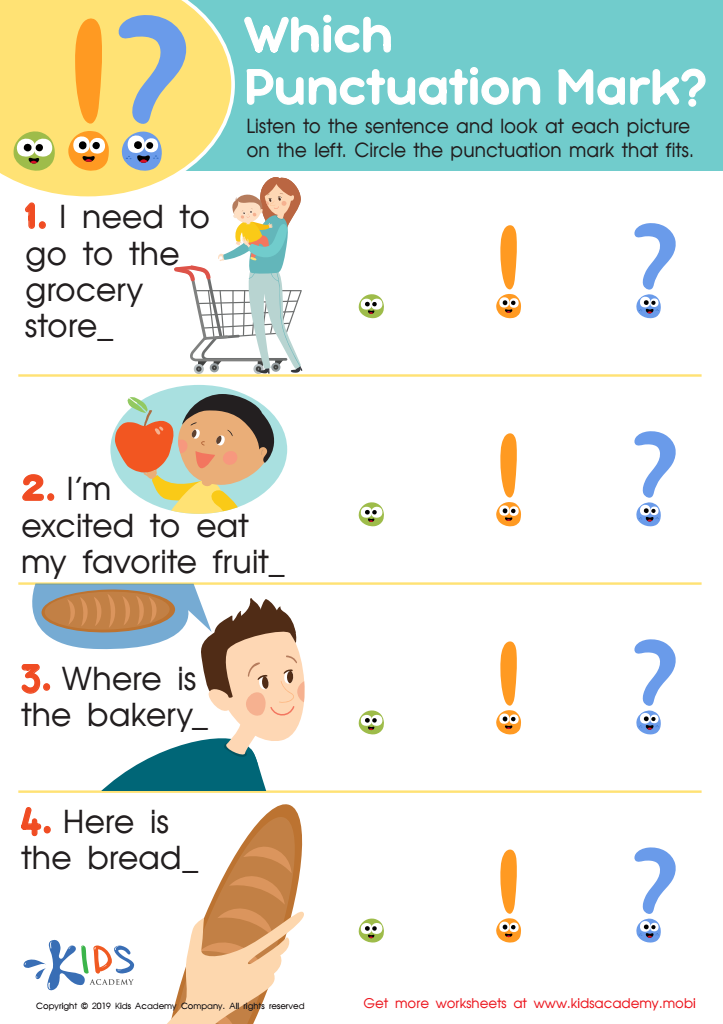

Which Punctuation Mark Worksheet
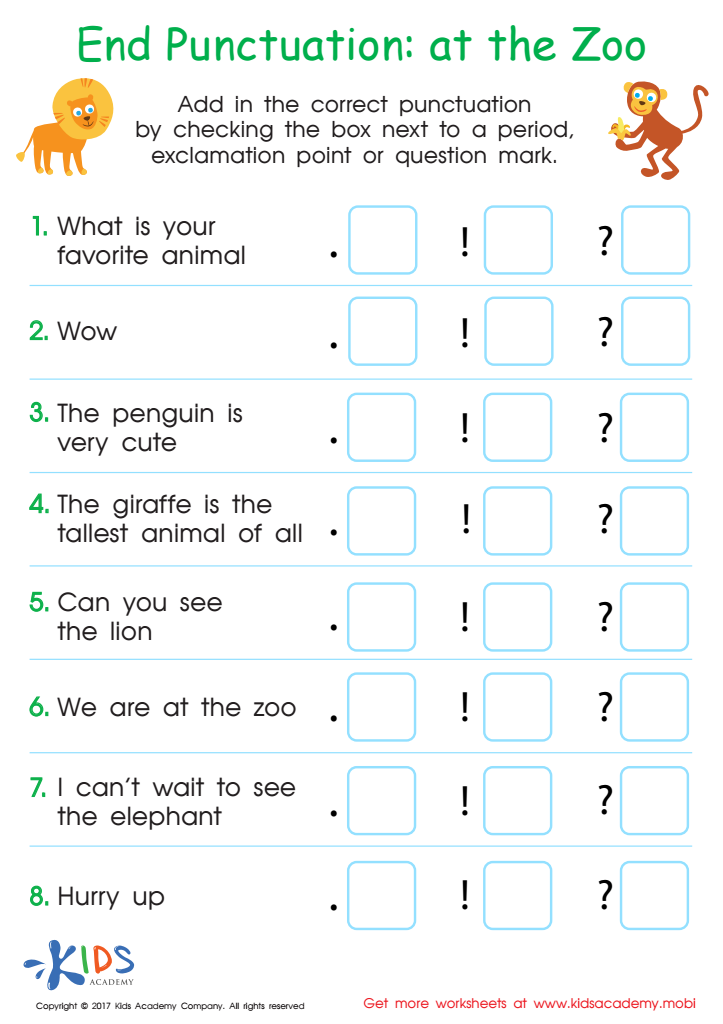

End Punctuation: At the Zoo Worksheet
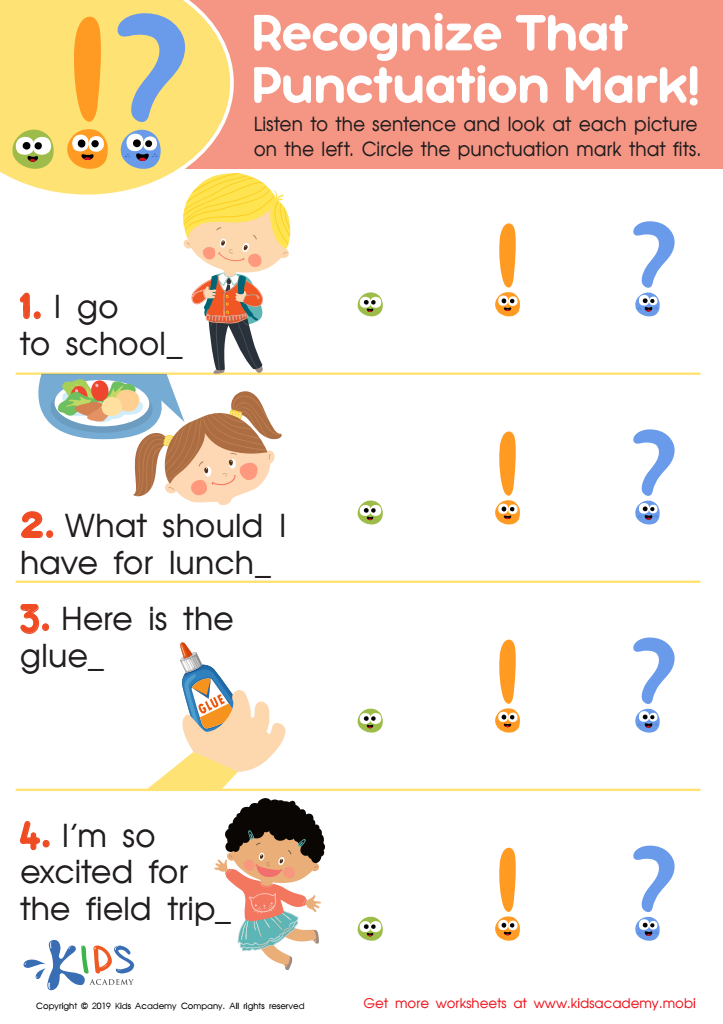

Recognize Punctuation Marks Worksheet
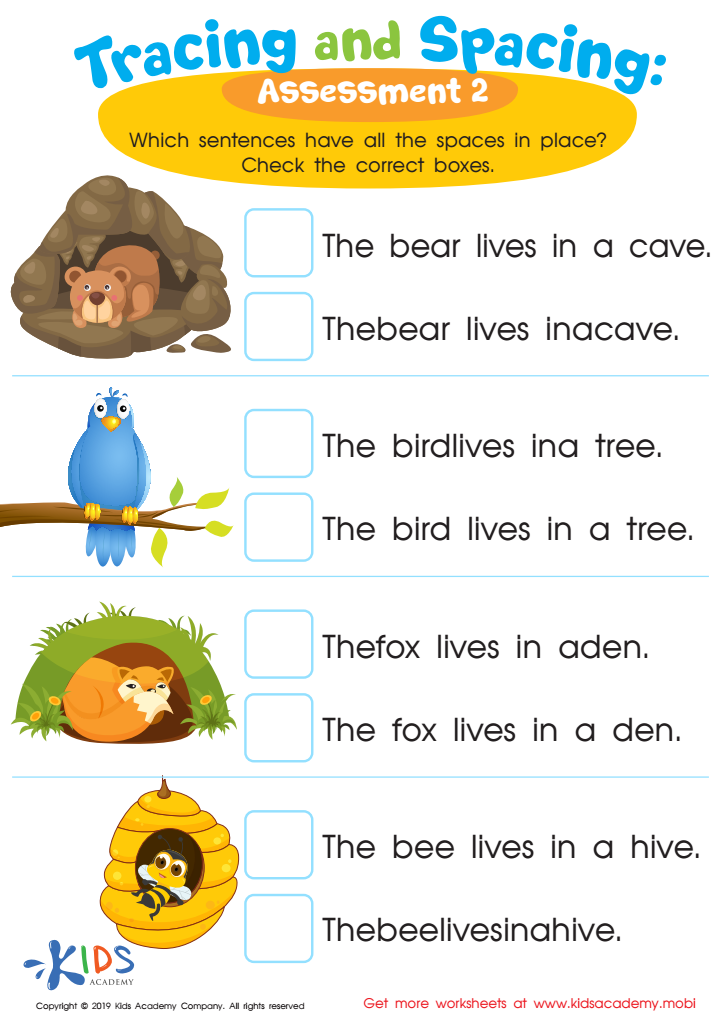

Tracing and Spacing: Assessment 2 Worksheet
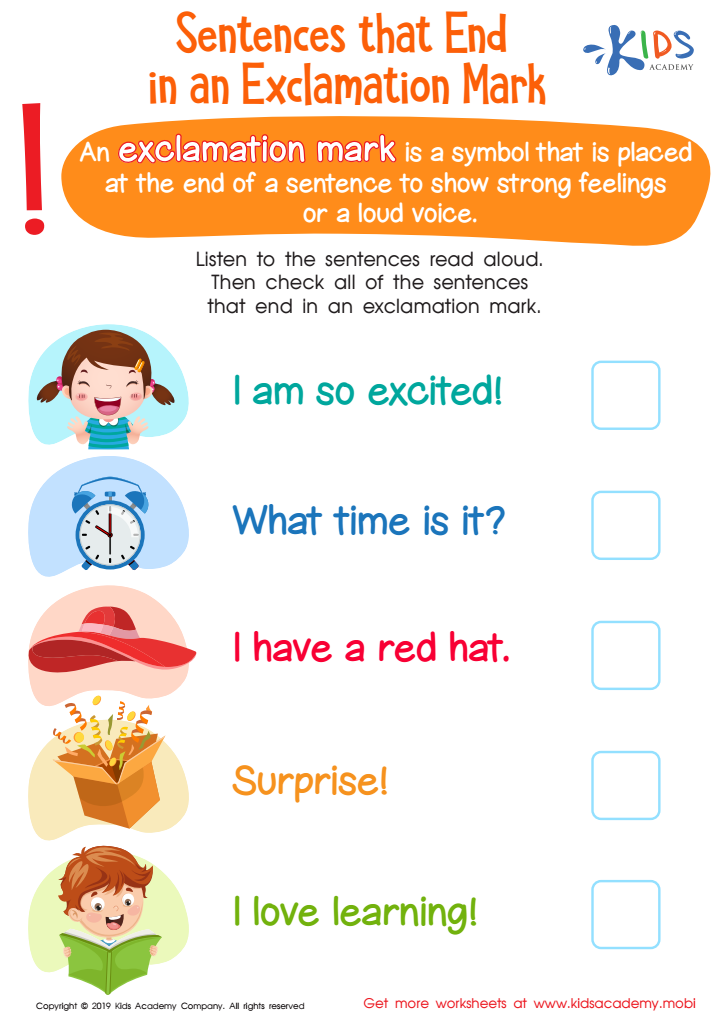

Sentences That End in an Exclamation Mark Worksheet
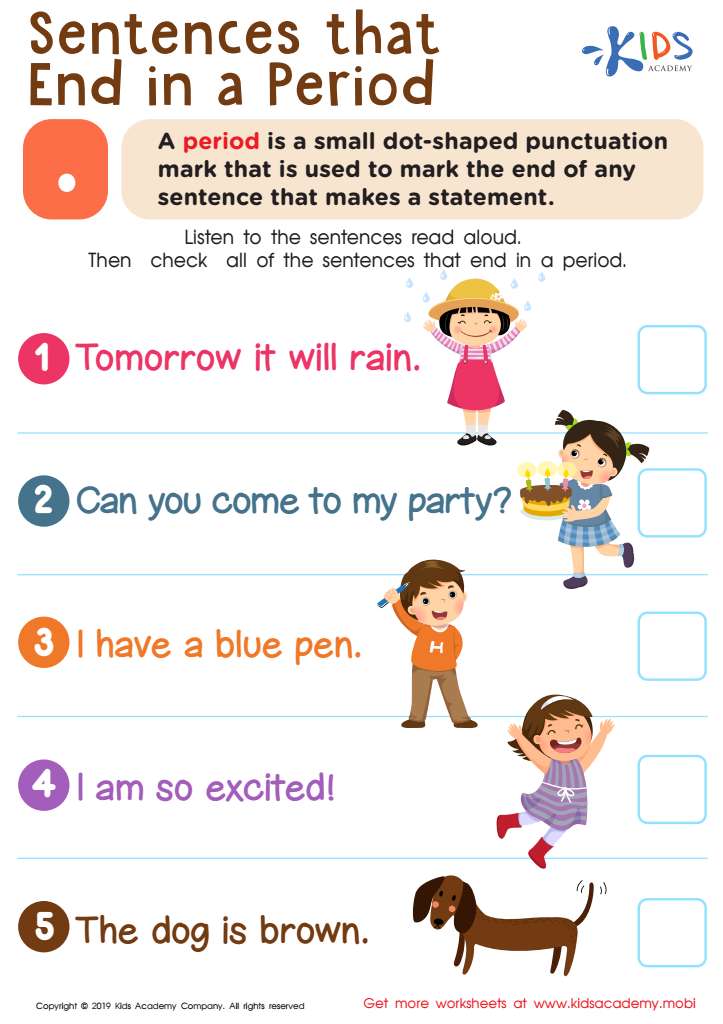

Sentences That End in a Period Worksheet
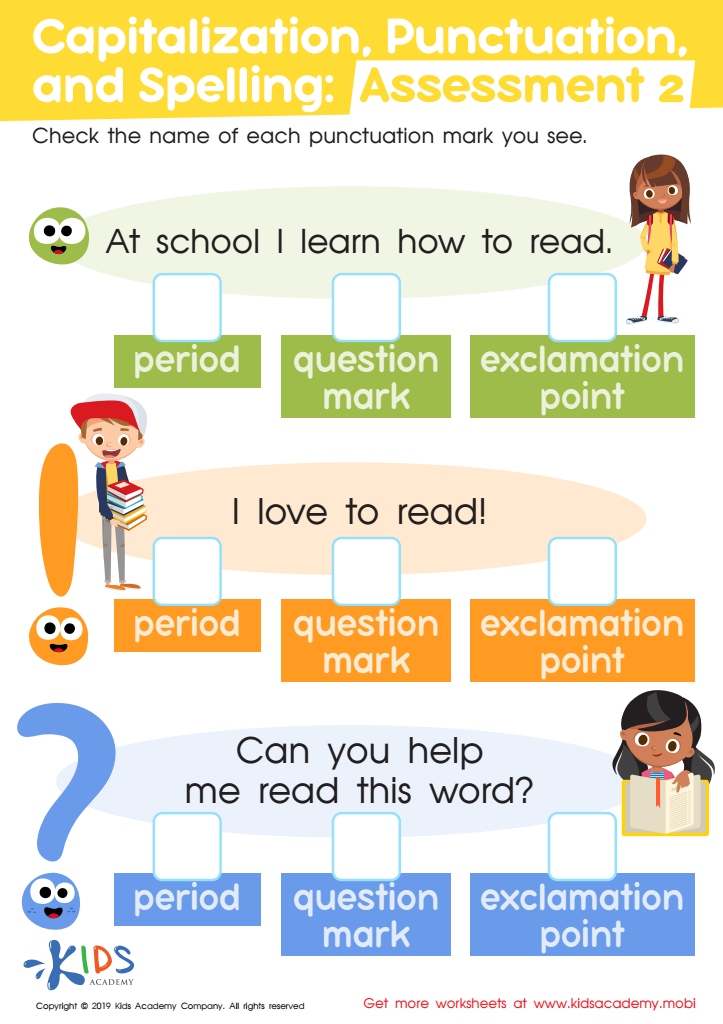

Capitalization. Punctuation. Spelling: Assessment 2 Worksheet
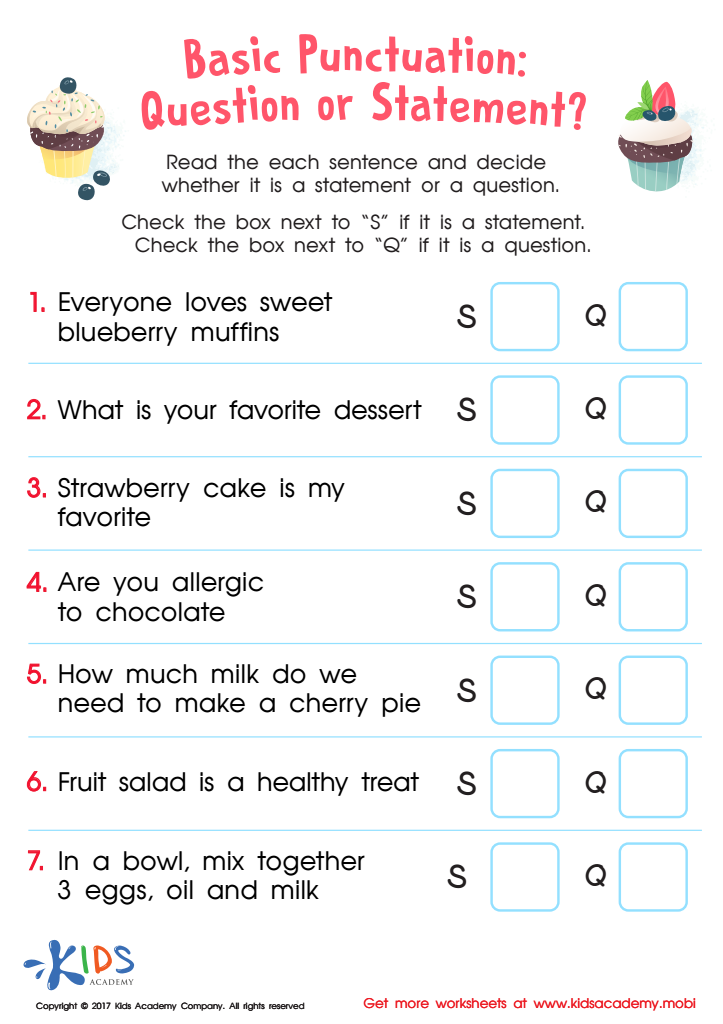

Basic Punctuation: Question or Statement Printable
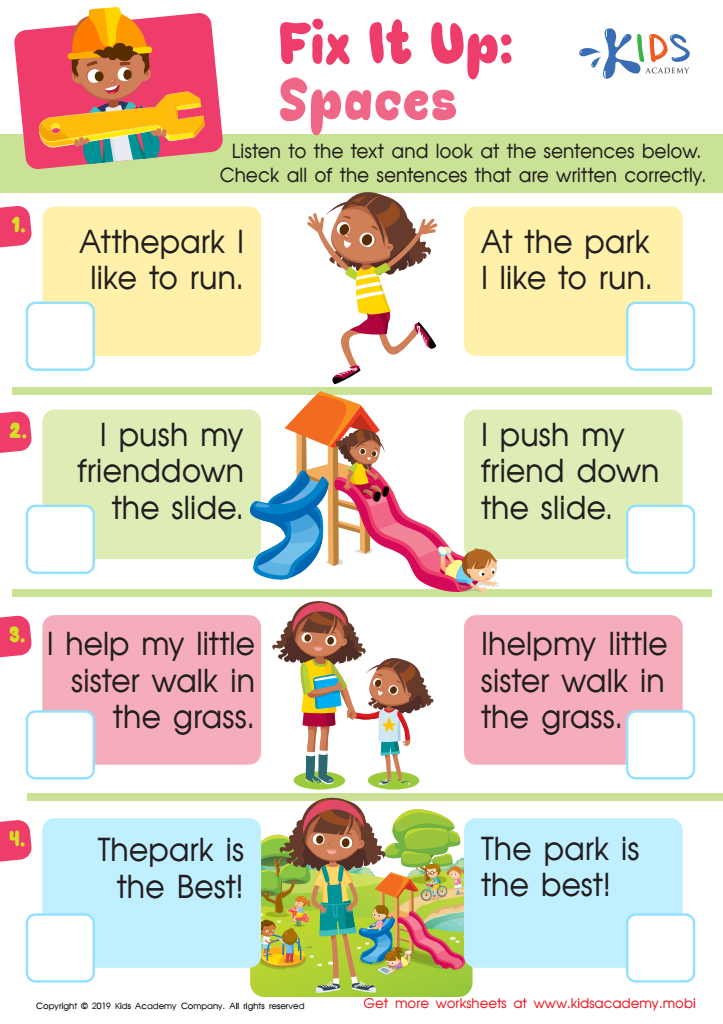

Fix Spaces Worksheet
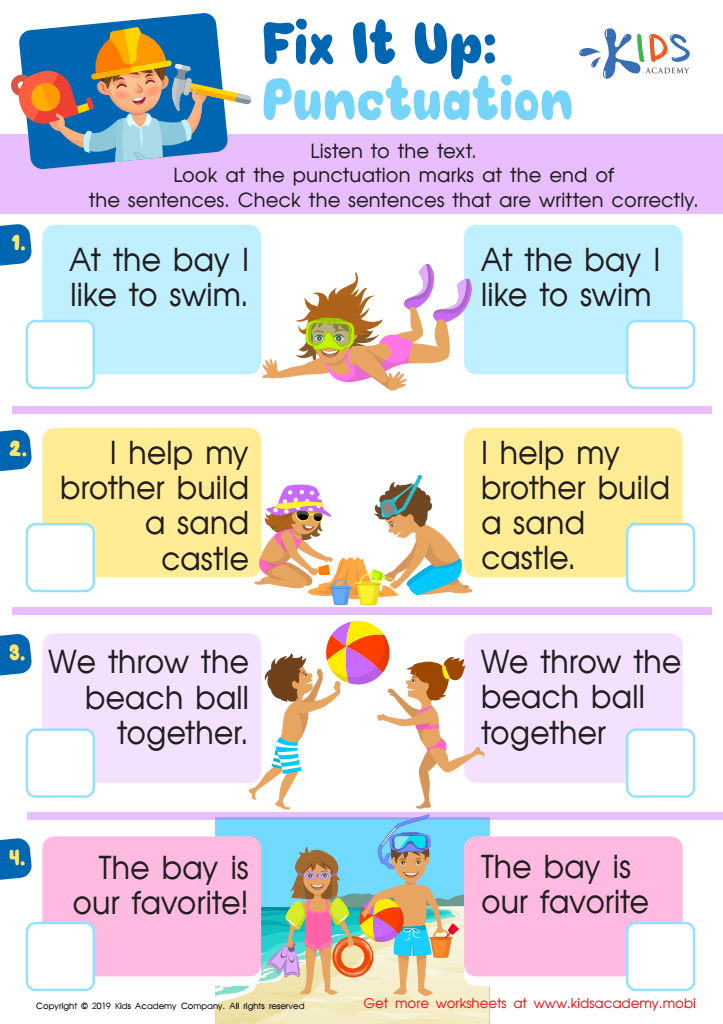

Fix Punctuation Worksheet
Punctuation for Ages 3-4 worksheets serve as an essential foundation in the early learning journey of young children. At this developmental stage, children are at the peak of their curiosity and are rapidly absorbing information. Introducing them to the basics of punctuation through engaging worksheets can significantly enhance their reading and writing skills from a tender age.
These worksheets are specifically designed to cater to the learning capabilities of 3 to 4-year-olds, incorporating colorful illustrations and interactive activities that make learning about periods, commas, and question marks exciting rather than a chore. Through these carefully crafted exercises, children begin to understand the importance of pauses, stops, and expression in written language, which is crucial for their future communication skills.
Moreover, Punctuation for Ages 3-4 worksheets lay the groundwork for literacy by helping children recognize that punctuation marks are not random symbols but tools that give structure and meaning to sentences. As they progress, this early exposure prepares them for more complex concepts in reading and writing, ensuring a smoother educational journey ahead.
In essence, Punctuation for Ages 3-4 worksheets are not just about learning dots and dashes. They are about sparking an early interest in language, fostering literacy development, and building a strong foundation for effective communication in the young minds of tomorrow.
 Assign to My Students
Assign to My Students















